Russia fires first intercontinental ballistic missile at Ukraine
Russia has launched a dangerous long-range missile at Ukraine for the first time since its full-scale invasion of its neighbour in 2022. Follow the updates.
News
Don't miss out on the headlines from News. Followed categories will be added to My News.
Russia has fired an intercontinental ballistic missile at Ukraine for the first time since it launched a full-scale invasion of its neighbour in 2022, according to Ukraine’s military.
The missile was launched from Russia’s southern Astrakhan region during an attack on Thursday, the Ukrainian air force said.
An intercontinental ballistic missile’s range is far greater than that of other missiles, which can travel 250-300km.
Russia has previously used nuclear-capable missiles to hit Ukraine, albeit with shorter ranges.
The precise target of the missile has not yet been revealed.
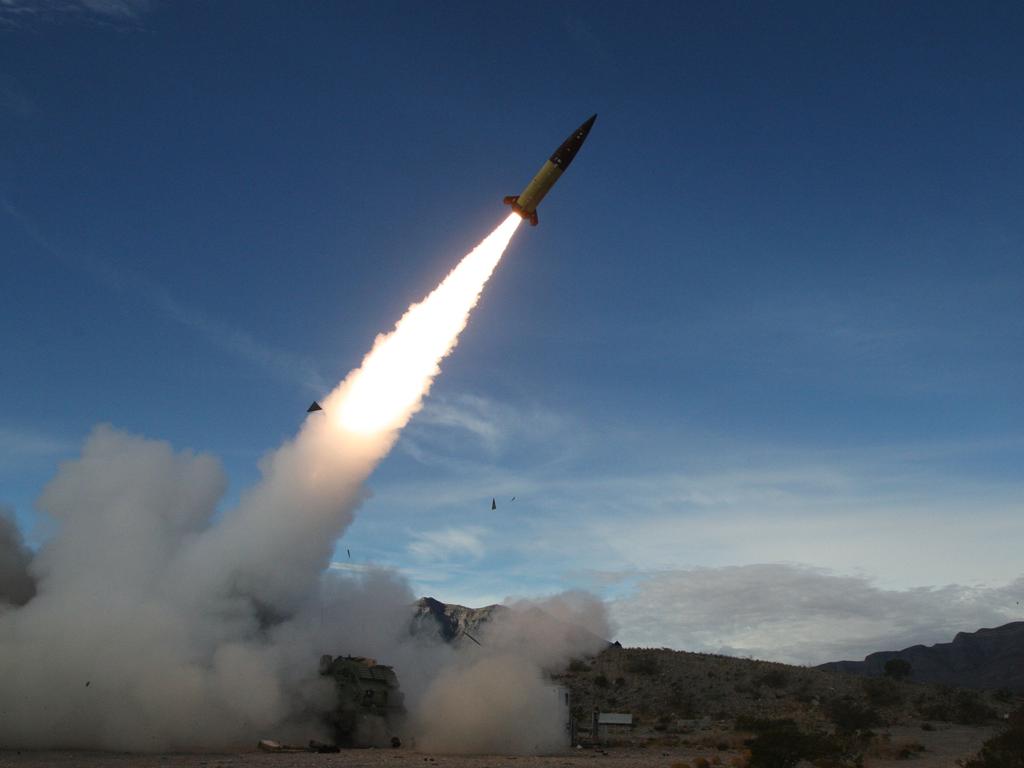
In response to the missile, the European Union said it would mark a “clear escalation” by President Vladimir Putin.
“While we’re assessing the full facts it’s obvious that such (an) attack would mark yet another clear escalation from the side of Putin,” EU foreign affairs spokesperson Peter Stano said, adding that the move would represent a “quantitative and qualitative change”.
It comes after Ukraine used US and British missiles to strike inside Russia this week after receiving permission to do so from Washington and London.
Moscow has warned for months that it would see such attacks as a major escalation.
FOLLOW UPDATES BELOW:
US AND UK ARM UKRAINE
Ukraine now has US landmines as Joe Biden seeks to provide them with an edge before his time as US President ends.
Ukraine fired UK Storm Shadow cruise missiles into Russia for the first time this week, with several missiles launched against at least one Russian military target, The Financial Times said, citing an unidentified Western official.
British Prime Minister Keir Starmer has not commented on the use of the missiles citing operational security.
Neither Moscow nor Kyiv have officially confirmed the missile attack or the use of Storm Shadows.
The apparent attack came after Washington this week said it had cleared Ukraine to use its ATACMS long-range missiles against military targets inside Russia – a long-standing Ukrainian request.
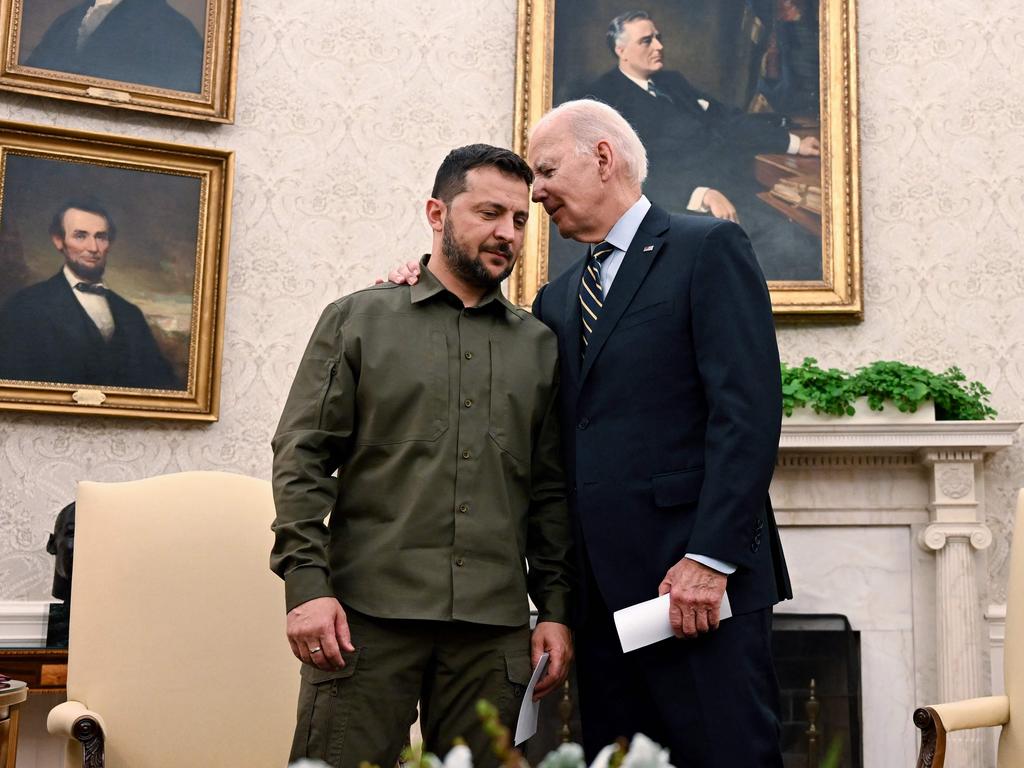
In response to the dramatic escalation, the US closed their embassy in Kyiv for the first time since the war began, instructing their staff to shelter in place. Canada, Greece, Hungary, Italy and Spain – all NATO members – followed suit.
The US Embassy said that it would reopen Thursday, after having “temporarily modified operations” due to a warning of a “potential imminent air attack”.
Ukrainian President Volodymyr Zelenskyy’s said that the US decision to send landmines to Kyiv – criticised by international charities because of their impact on civilians – was “very to stop Russian assaults”, saying it would “really strengthen our troops on the front”.
US Defence Secretary Lloyd Austin told reporters not only has America supplied Kyiv with landmines but it was also adding an extra $A424 million.
“Because the Russians have been so unsuccessful in the way that they have been fighting, they’ve kind of changed their tactics a bit,” Mr Austin told reporters in Laos.
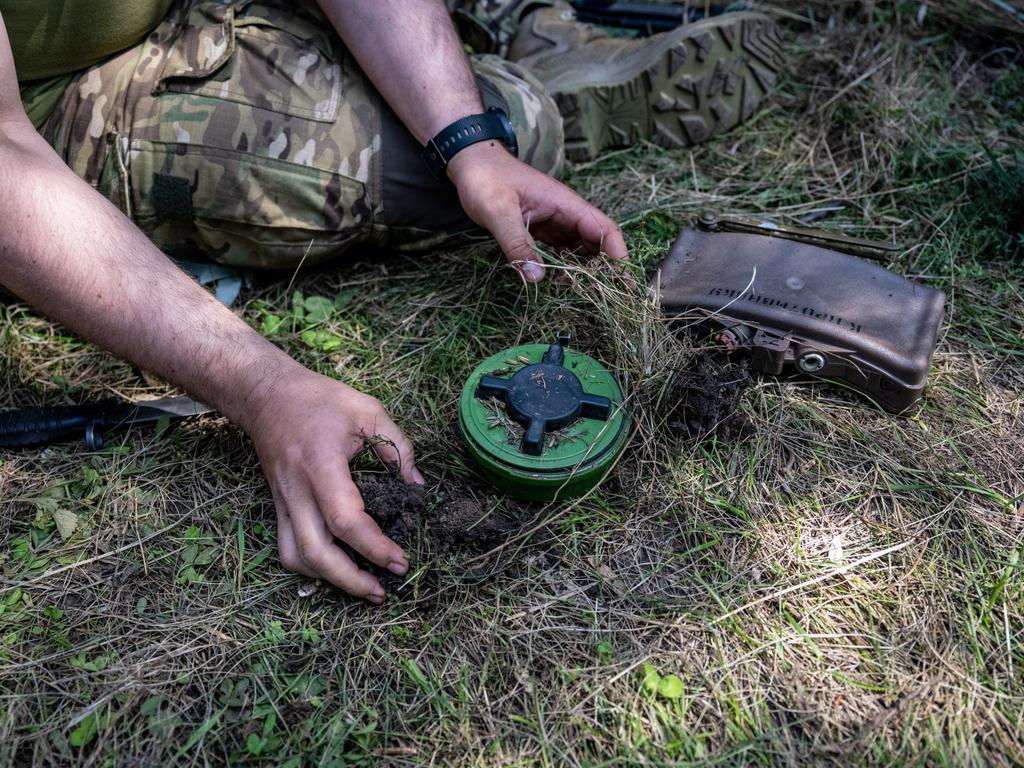
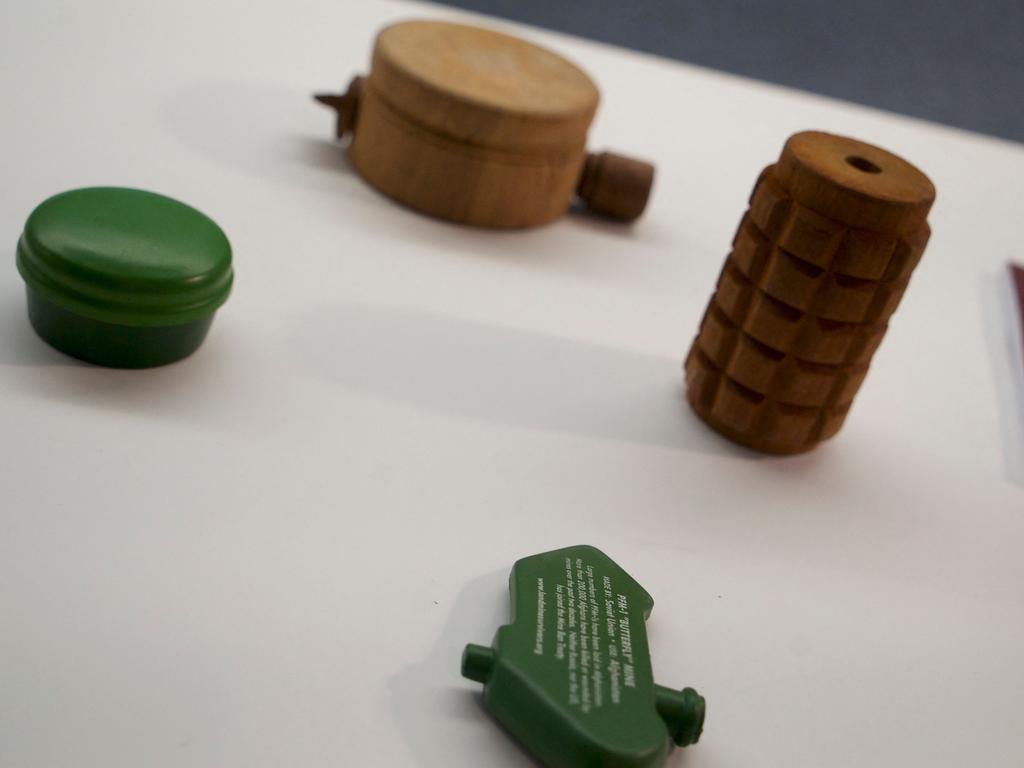
“They don’t lead with their mechanised forces anymore. They lead with dismounted forces who are able to close and do things to kind of pave the way for mechanised forces.
Mr Austin said the anti-personnel mines would be used in eastern Ukraine.
Unlike traditional landmines, these new mines have batteries which are designed to run out in the short term so the mines do not pose a historical threat to civilian populations once the war is over.
“The landmines that we would look to provide them with are landmines that are not persistent. We can control when they would self-activate, self-detonate, and that makes it far safer eventually than the things that they are creating on their own,” Mr Austin said.
Mr Austin said despite the safety features, America insisted Ukraine are “recording where they’re putting these mines.”
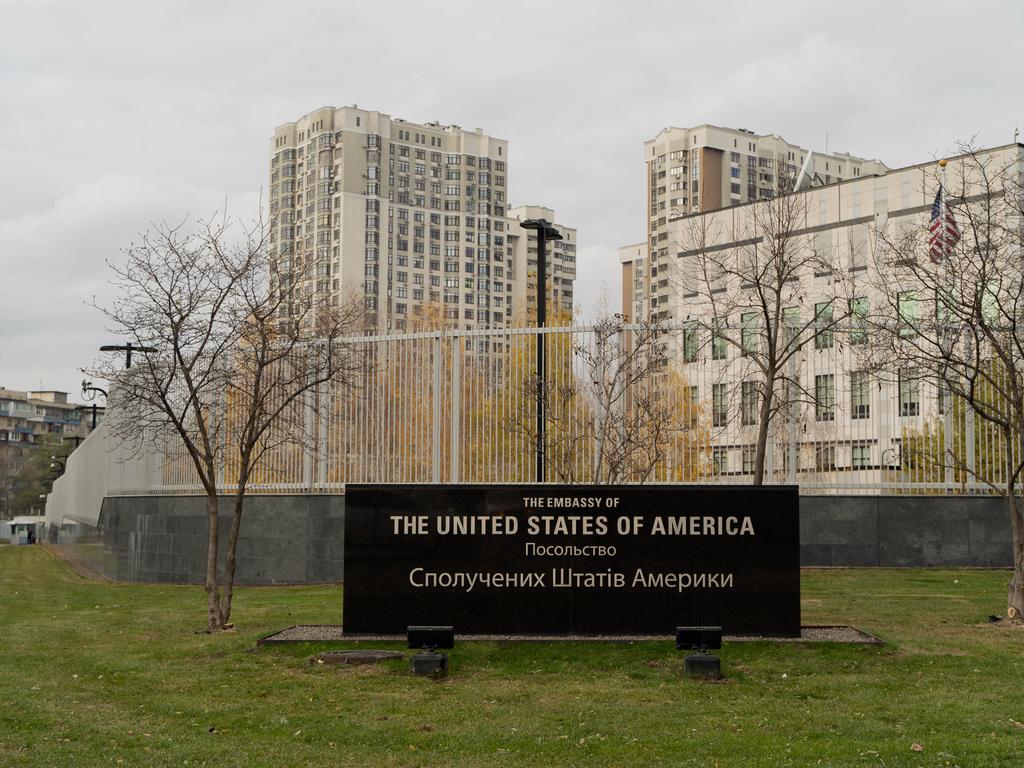
He gave a delivered a brutal sledge at Russian President Vladimir Putin’s lack of success in the war.
“The largest military in Europe invaded its neighbour, who had a much smaller inventory, much less capability, and 1000 days later, they’ve yet to be successful,” Mr Austin said.
“This war has gone on for 1000 days, and Putin has failed in every case to achieve any sort of strategic objective.
The American Defence chief noted this proves “it is possible for a smaller, less capable country to defend its sovereign territory, if its people are committed and if it has some of the resources that it needs to do so.”
“Some of the aggressors in the world have learned that this is not as easy as one would think, and there’s a cost to be paid for this.
“I can guarantee you that autocrats around the world are looking at this and taking note, taking inventory.”
‘THREAT TO CIVILIANS’
Mary Wareham, a deputy director at Human Rights Watch, said Ukraine’s use of the mines would contravene the Mine Ban Treaty, and questioned the safety of the ageing stocks Washington would be supplying.
“From a clearance perspective, de-miners have to approach any type of explosive object with the knowledge that it may explode,” Wareham told AFP, adding that the self-deactivation feature is “not enough.”
Amnesty International called Washington’s decision “a deeply disappointing setback,” saying “even the ‘non-persistent’ mines are a threat to civilians.”
The Biden administration was similarly criticised last year for supplying Ukraine with cluster munitions.

Alma Taslidzan of aid group Handicap International, said the weapons often mutilate victims who are not immediately killed.
Landmines “cannot distinguish between combatants and civilians”, said Taslidzan, adding that they remain a danger to groups such as children and farmers for decades.
“In that sense, it’s unethical to use landmines,” added Taslidzan – herself originally from Bosnia, where “30 years after the war we still have massive contamination, even though millions of euros have been invested in the country for (mine) clearance”.
Some 164 countries and territories including Ukraine have signed the 1997 Mine Ban Treaty, which bars use of anti-personnel landmines and calls for the destruction of stockpiles.
JOINT CALL URGING NON-ESCALATION OF ‘ARMS RACE’
Four Latin American countries - Brazil, Chile, Colombia and Mexico - made a joint call to “avoid actions that would escalate the arms race” in the Ukraine war.
The four nations said that such actions would “aggravate the conflict,” and urged “all parties involved to fulfil their international commitments and to prioritise dialogue and the search for peace in that region.”
The statement was issued a day after a G20 summit in Brazil in which the leaders said they welcomed “all relevant and constructive initiatives that support a comprehensive, just, and durable peace” in Ukraine.
‘BIG MISTAKE’
Turkey’s President Recep Tayyip Erdogan, a NATO ally of the US, said that the decision to allow Kyiv to use the powerful long-range missiles was a “big mistake”.
“This step by Biden will not only escalate the conflict, but will lead to a greater reaction from Russia,” Erdogan, who sees himself as a possible mediator, told journalists.
RUSSIA SHOOTS DOWN 50 UKRAINIAN DRONES
Russia said it had shot down 50 Ukrainian drones over regions bordering Ukraine.
Russian systems “destroyed or intercepted 44 Ukrainian aerial drones,” according to a statement from the Russian Defence Ministry on Tuesday local time.
The majority were neutralised over the Novgorod region, according to the ministry.
Other drones were shot down in Kursk, Belgorod and Briansk, as well as over the Moscow region.
In addition, six Ukrainian drones were shot down Wednesday morning over the Samara, according to the regional governor, Vyacheslav Fedorishchev.
The attack did not cause any injuries or damage, he said on Telegram.
Russia announces almost daily that it has destroyed Ukrainian drones launched against its territory.
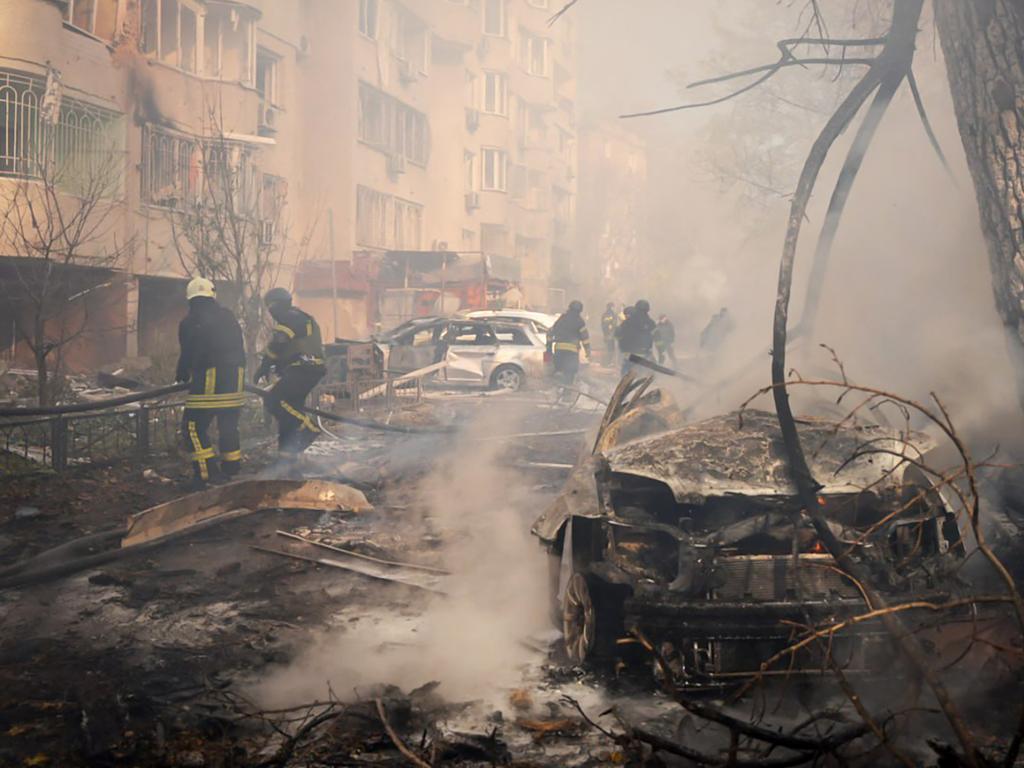
NKOREA UPS ARTILLERY
North Korea has sent additional shipments of artillery and rocket launchers to Russia to support its war against Ukraine as its troops enter combat, a South Korean politician said on Wednesday.
Seoul has accused the North of sending thousands of soldiers and container-loads of weapons to Russia as military ties between the two countries have grown closer, despite rafts of sanctions on both.
The South’s National Intelligence Service (NIS) “has confirmed that the North has shipped 170mm self-propelled artillery and long-range 240mm rocket launchers”, Lee Seong-kweun, who serves on a parliamentary intelligence committee, said after an NIS briefing.
Pyongyang has also dispatched additional personnel to maintain and repair the new weapons, as they are not part of Russia’s conventional arsenal, he added, without providing details.
RUSSIA’S NUCLEAR THREAT AFTER UKRAINE FIRES US MISSILE
Russia warned it would respond after Ukraine fired US long-range missiles at its territory for the first time, as the Kremlin issued a nuclear threat.
The missile attack, which Ukrainian officials confirmed to RBC Ukraine was one of America’s Army Tactical Missile Systems, targeted an ammunition store in Karachev, in Russia’s Bryansk region which is about 120km from the Ukrainian border on Tuesday.
Russia’s Defence Ministry confirmed six missiles were shot at the facility, five of which they shot down.
However the sixth missile made contact in spectacular fashion with video of the strike quickly going viral.
🚨🇺🇦🇷🇺UKRAINE USES U.S MISSILES TO HIT RUSSIAN AMMO DEPOT
— Mario Nawfal (@MarioNawfal) November 19, 2024
A huge explosion lit up the night sky around 77 miles from the nearest Ukrainian border at an ammunition store in Karachev, in Russia's Bryansk region.Â
Eyewitnesses reported that the ammo dump was targeted by missiles,… https://t.co/QYFP5cn1Ozpic.twitter.com/6nPf1bb67D
The fiery events occurred as Ukraine marked the grim milestone of 1000 days at war with Russia.
News of the launch came just minutes after Russia publicly announced they had updated their nuclear doctrine.
“The use of Western non-nuclear rockets by the Armed Forces of Ukraine against Russia can prompt a nuclear response,” the new doctrine reads.
Kremlin spokesman Dmitry Peskov told journalists on Tuesday that Russia had made the decisive change to its policy.
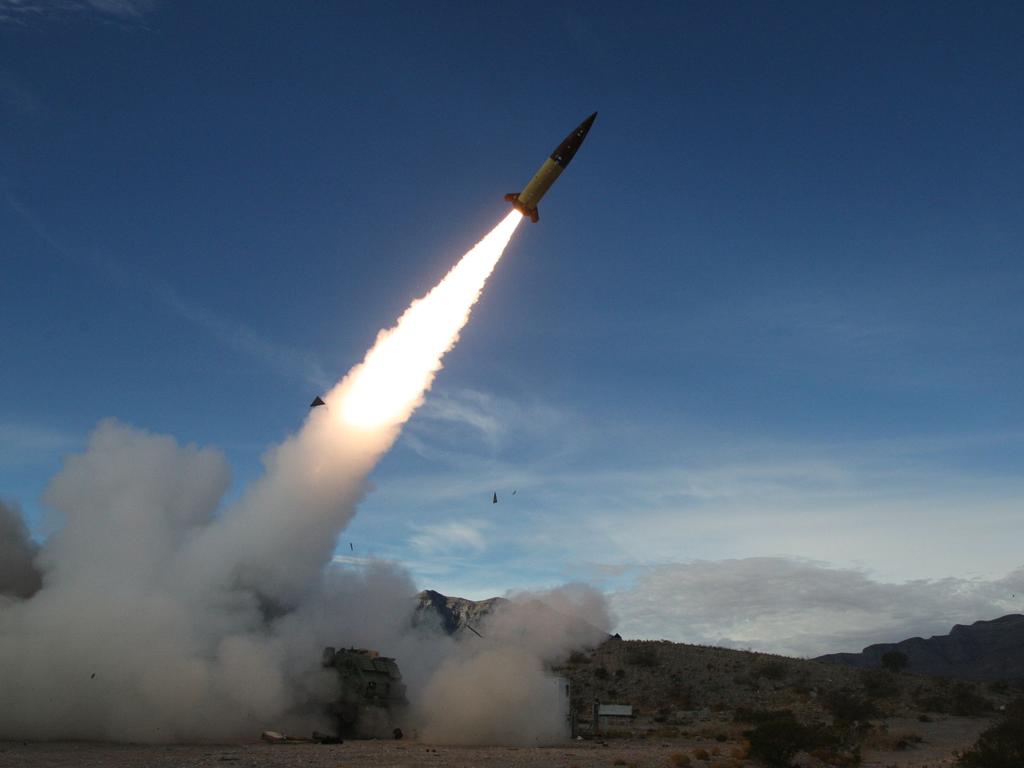
“The Russian Federation reserves the right to use nuclear weapons in the event of aggression with the use of conventional weapons against it,” Mr Peskov said.
Mr Peskov added the change was “necessary to bring our principles in line with the current situation.”
Russian Foreign Minister Sergei Lavrov said the attack showed Western countries wanted to “escalate” the conflict.
“We will be taking this as a qualitatively new phase of the Western war against Russia. And we will react accordingly,” Lavrov told a press conference at the G20 summit in Brazil.
It came after Ukrainian President Volodymyr Zelenskyy issued a stark five-word warning to Vladimir Putin as he told the Russian President: “Missiles will speak for themselves”.
ZELENSKYY’S FIVE WORD WARNING
US President Joe Biden, who has long snubbed Mr Zelenskyy’s pleas for Western-supplied weapons, gave the go-ahead for American-supplied ATACMS missiles to be used to strike inside Russian territory.
Mr Zelenskyy said: “There’s a lot of talk in the media about us receiving permission for respective actions.
“But strikes are not carried out with words. Such things are not announced. Missiles will speak for themselves.”
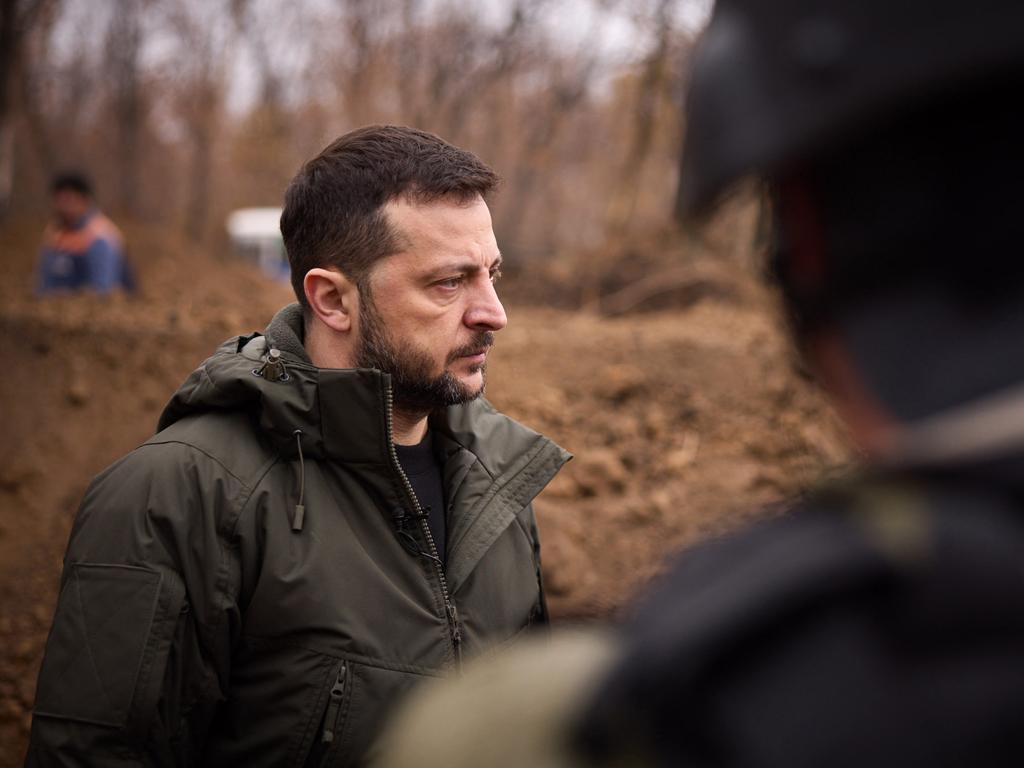
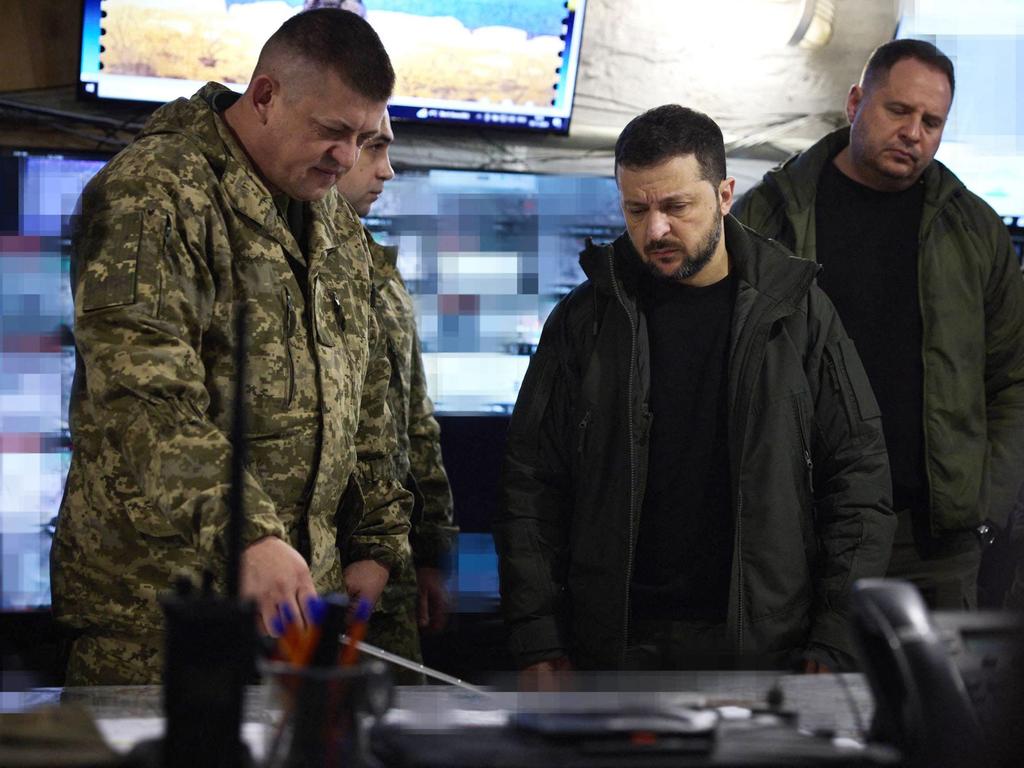
With President-elect Donald Trump due to enter the White House in January, it is unclear whether he will uphold Mr Biden’s policy.
Mr Trump has vowed to end the war between Russia and Ukraine when he is formally sworn into office next year.
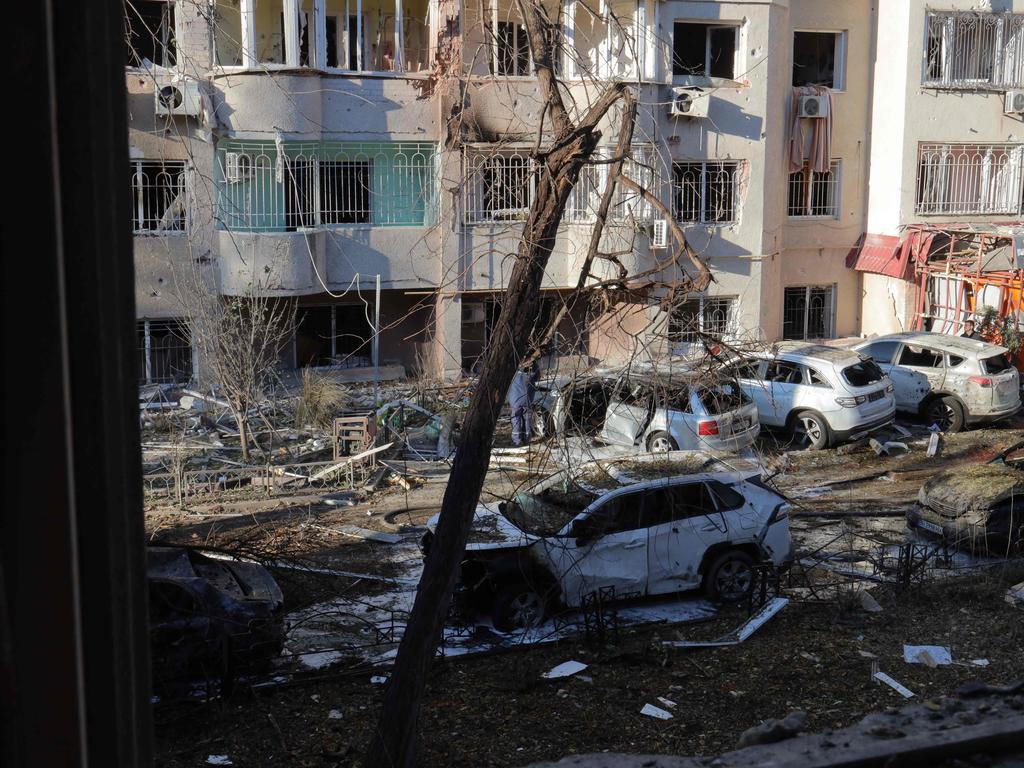
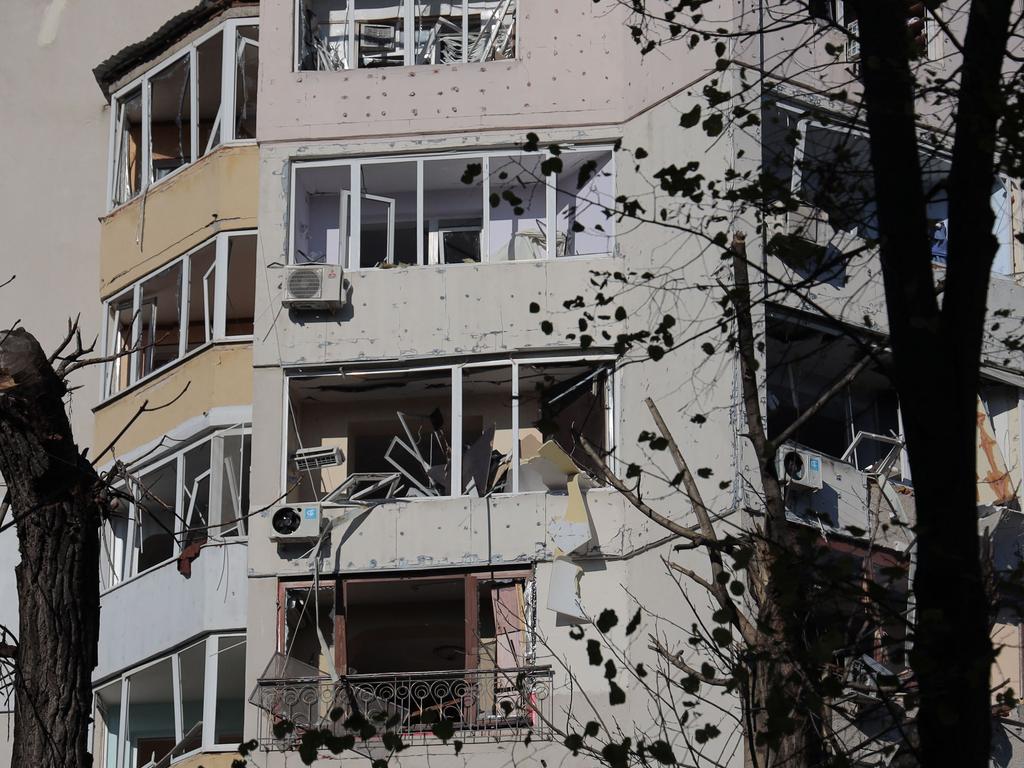
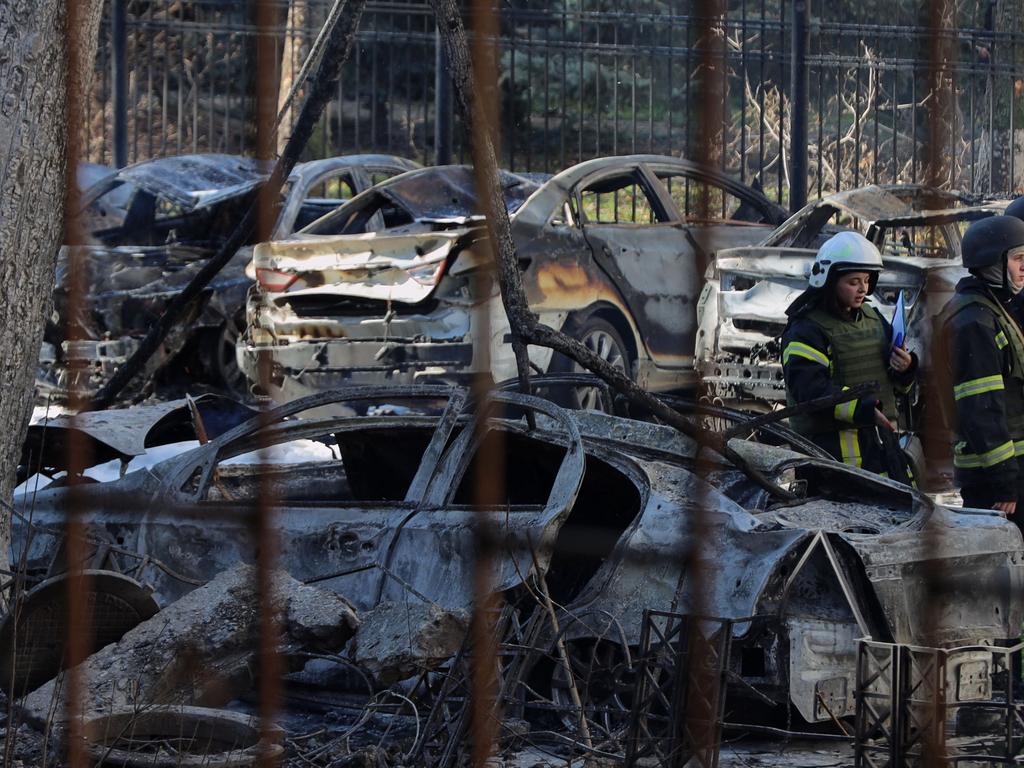
In an earlier statement on X, Donald Trump Jr slammed Mr Biden’s move.
“The Military Industrial Complex seems to want to make sure they get World War 3 going before my father has a chance to create peace and save lives,” he wrote.
More Coverage
Originally published as Russia fires first intercontinental ballistic missile at Ukraine







